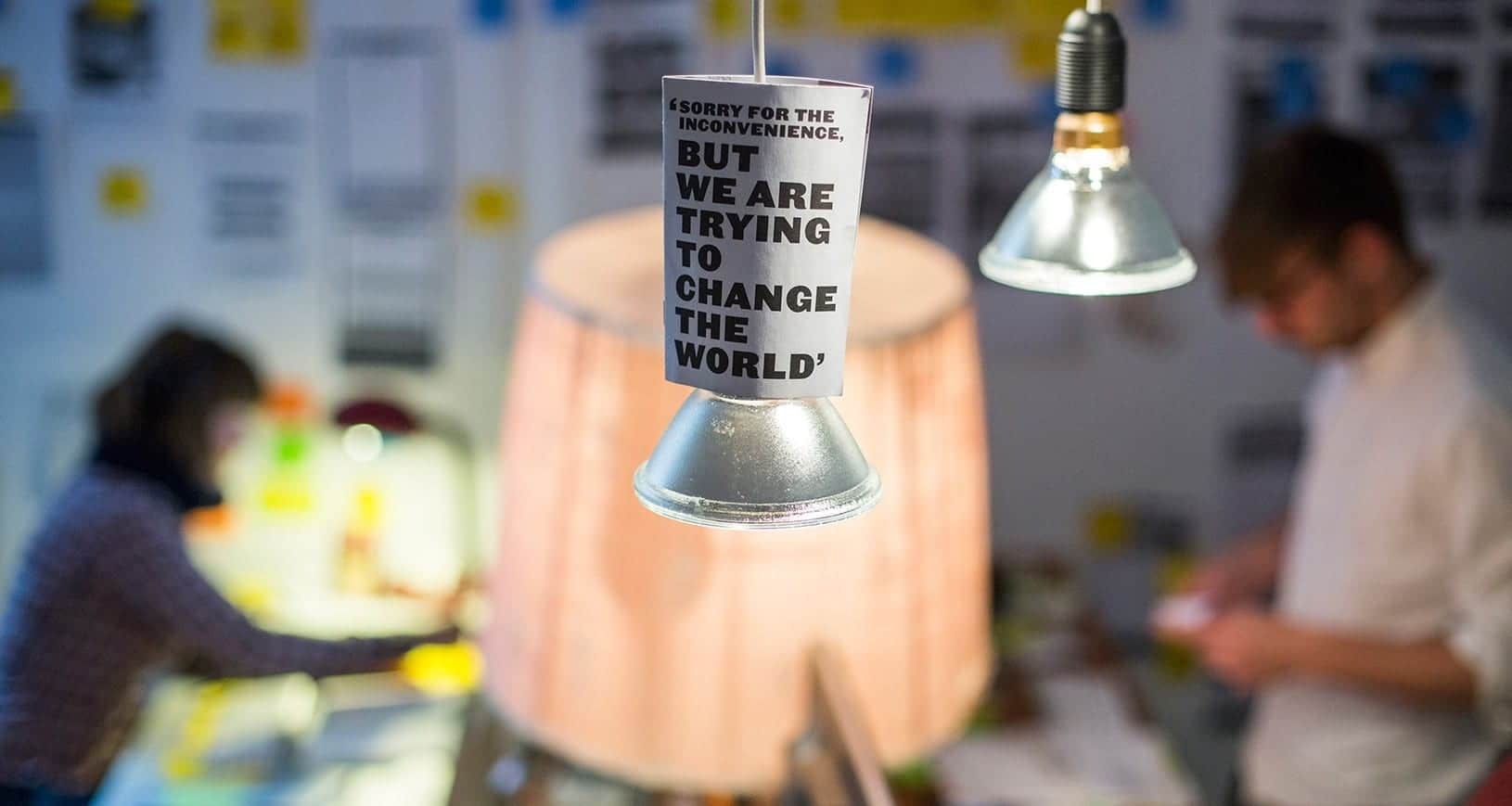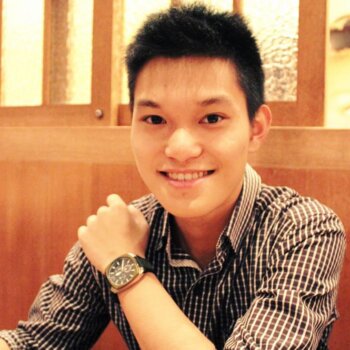IT WAS JANUARY, and the weather was bleak. It’d been freezing and overcast for as long as I could remember. Sometimes during winter in Akron, it feels like the sun sets in November and doesn’t rise until March.
It was late afternoon, and I was taking a break from hacking on some now-forgotten piece of code. Looking out the window of our “office” — really the second bedroom of our apartment where we’d crammed my desk — there was a foot of snow on the ground. Someone was trying to drive through the parking lot, their tires skidding back and forth on the thick layer of ice under the slush.
Taking a moment, I tried to remember when I’d last been out of the apartment, not counting trips to the grocery store. I couldn’t remember.
We’d started our first company, AgileZen, in late spring the previous year. We launched in July — July 7th, actually, for luck — and things had been going pretty well. We landed solid traction out of the gate, and people loved the product.
I was still pretty tired after grinding out the first version of the software, but I was having a great time. I grew up idolizing id Software and Nullsoft, and ever since I was a teenager, I’d wanted to start a software company. I’d spent the six years since finishing college working as a developer at various companies, but I was tired of executing someone else’s vision.
Zen was something that Niki and I had built by ourselves, without anyone’s permission, trying to cure a pain that I had personally felt. We were pleasantly surprised that it actually seemed to be valuable enough that people were willing to pay money for it. In fact, it was now making enough money that we weren’t burning any more of our savings.
To avoid spending money, we’d been subsisting on a diet consisting largely of soup. (Ramen, the stereotypical startup food, is dried via frying, making it pretty bad for you. Soup is cheap, healthy, and easy to make in large batches.) But now, we’d gradually started to feel like we might be able to afford to eat at restaurants again. I even bought some beer again, which we had considered an opulent luxury.
Anyways, things were looking good. We were still very small, but growing quickly. We had all kinds of crazy ideas on what we could build next. It was hard work, but exciting. A little bit of sunlight would have made me happier, but I couldn’t complain.
My computer dinged a familiar sound, letting me know that I had a new email. We didn’t have any employees, so an email typically meant that there was either a customer support request or a new sale. By now, the ding elicited a Pavlovian response, and I walked over to my desk to check.
Instead, it was an email from a corporate development guy at Rally Software. He wanted to schedule a meeting to discuss how we might be able to work together. Interesting.
I walked across the apartment to Niki’s desk. The office wasn’t quite large enough for both of us to comfortably sit, so she had set up camp in a corner of the living room.
“Did you see that email?” I asked.
Niki looked up and spun around in her chair. “Yeah, what do you think they want?”
“Dunno. Probably just want to talk about building an integration.”
We never built Zen with the idea that we were going to be acquired. We’d talked about it of course, but never more than half-seriously. It always seemed so far down the road that we didn’t give it any real thought. I just saw project management as a problem that needed to be solved, and it was frustrating that no one else had figured it out.
Just a couple of weeks before Rally reached out to us, we were at CodeMash in Sandusky. At the bar after the conference wrapped for the day, a colleague joked with us that the company he worked for (a major player in the project management market) should buy AgileZen. We laughed it off, but it was the first time I realized that selling the company might be a real option.
A few days after they contacted us, we had a conference call with the people from Rally. To our surprise, the CEO was on the call. I remember muting the phone and saying to Niki, “I don’t think this is about integration.” It quickly became apparent that they were interested in acquiring the company.
The idea that someone would be interested in buying our little company was flattering. We hadn’t even been in business for a year yet, and a multi-million dollar market leader thought what we were doing was good enough that they wanted to pay us a bunch of money and stock to have us do it for them instead.
We talked for an hour, and they bought us plane tickets to visit their headquarters in Boulder the following week.
On the way to the airport, we dropped our dogs off at Niki’s parents’ house. We were running a little late, and were in a hurry to make our flight. Walking back to the car, Niki slipped on the ice outside and fell, tearing the knee of her pants and scraping herself pretty badly.
This was strange; I’m usually the one getting randomly injured. Since we’ve been married, I’ve fallen down the stairs three times, once managing to spill coffee on the ceiling. When exercising, I’ve manage to twist my knee, ankle, elbow, and punch myself in the face not once but multiple times.
Kneeling on the ice, Niki looked at her knee and then to me with a look of sheer terror.
“We’ve got this,” I said, helping her up. We rushed back home so she could bandage her knee and change clothes before racing to the airport. Fortunately the roads were well-salted, so by setting some land speed records — without drawing the attention of the state highway patrol — we made our flight.
We landed late in Boulder after dark, and the corp dev guy picked us up at the airport. We made small-talk as we drove from Denver to Boulder, and it was during this conversation that I first heard the phrase b-school spoken without being drenched in sarcasm.
We checked into the Hotel Boulderado, a restored historic hotel in downtown Boulder. After pacing around our room for a bit, we went downstairs to meet with Rally’s executive leadership team for dinner.
I was pretty nervous. We were just two kids from Akron that built this little web app to help people organize their work. Collectively, the people from Rally had something like 100 years of experience. Several of them had previous acquisitions, netting them significant personal wealth. Mostly, I drank a lot of wine and tried (unsuccessfully) not to sweat through my shirt.
We spent the entire following day at their office, meeting with a never-ending series of people from Rally. They explained to us what they thought the potential future of Zen could be, and we were struck with how similar their vision was to ours. They were smart, determined, energetic people, passionate about what they were doing, and driven by a higher purpose. I liked them quite a bit.
One thing that struck me as amusing is that throughout our conversations, they consciously avoided using the word acquisition — it was always merger. A clever attempt at flattery, which I appreciated in spite of its transparency.
After all of the meetings, the CEO came back to say that they wanted to meet, but that they wanted to make an offer to buy our company. We would hear from them in a few days once they put together the numbers. He thanked us, and we left for the airport.
A few days after we got back from Boulder, I was scheduled to visit Microsoft in Seattle. Just before I left, they called with the offer. It was reasonable — nothing ridiculous, but respectable, particularly considering our ARR had just barely cracked $70K. The payout was split between cash and a grant of stock up front, good compensation in terms of salary and two years of stay-pay bonuses for both of us, as well as stock options on a three-year vesting schedule.
By this point, Rally had raised $90 million or some exorbitant amount of venture capital, and were clearly near exit velocity where they could go public. We met with their CFO, who quickly won our confidence with his frankness and transparency with their finances and future plans. Between the salaries they were offering (starting at $135K for each of us) and the potential value of the stock, it was hard to look at our meager bank balance and not want to sell.
Not insignificantly, it also meant we could leave Akron. We knew we would miss our families back home, but after 27 years of Ohio winters, we were ready for a change. We weren’t keen on moving to Colorado, but strangely enough, they had an office in Raleigh, NC, where we already had several friends. It felt like serendipity.
All the financial incentives aside, we started Zen because we wanted to help people work together more effectively. We were convinced we were on to something with Zen, but we weren’t sure that we could take it to the next level. Getting access to Rally’s resources and reach meant that we might be able to get our product in front of more people, and increase our impact.
With all that said, one of the main reasons that we decided to sell was: quite simply, there were times when we felt like we had no idea what the fuck we were doing. We couldn’t shake the feeling that we were just a couple of kids in an apartment, buried somewhere under lake effect snow. These people were big time. They had deep pockets, lots of experience, and a strong understanding of the market.
So, we sold our company.
Due diligence took a month, during which I spoke at Microsoft’s MIX conference in Las Vegas. I was more than a little distracted, and my talk was a trainwreck. To my chagrin, I’m sure there’s visual evidence of it somewhere. I’ve never really apologized to Phil Haack, who was nice enough to ask me to speak at the conference, only to be presented with a huge shitshow. Sorry, Phil.
On the day the deal finally closed, we bought a $50 bottle of champagne and drank it together in our little apartment-office as the snow continued to fall outside. Just a couple of kids from Akron, but we were real-life entrepreneurs with an actual acquisition on our resume. We got calls from the press asking us questions. Investment bankers called us asking to manage our assets (which weren’t nearly as impressive as they undoubtedly thought). We felt like we’d made it.
Eventually, we’d come to learn how wrong we were, how hard the road ahead of us would be, and that selling the company would mean the end of what we’d worked so hard to build. But that night was for celebrating.
_____________________________________________________
About the Author
This article was written by Nate Kohari, a software engineer and an entrepreneur who co-founded AgileZen.




























